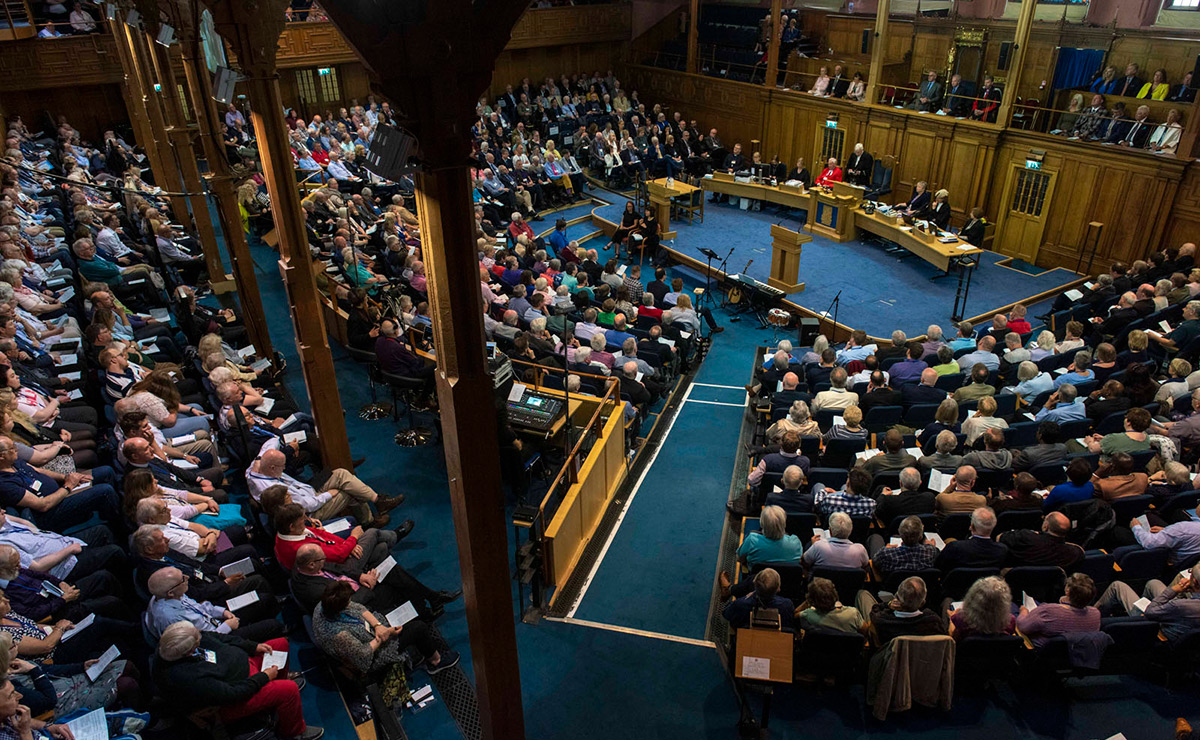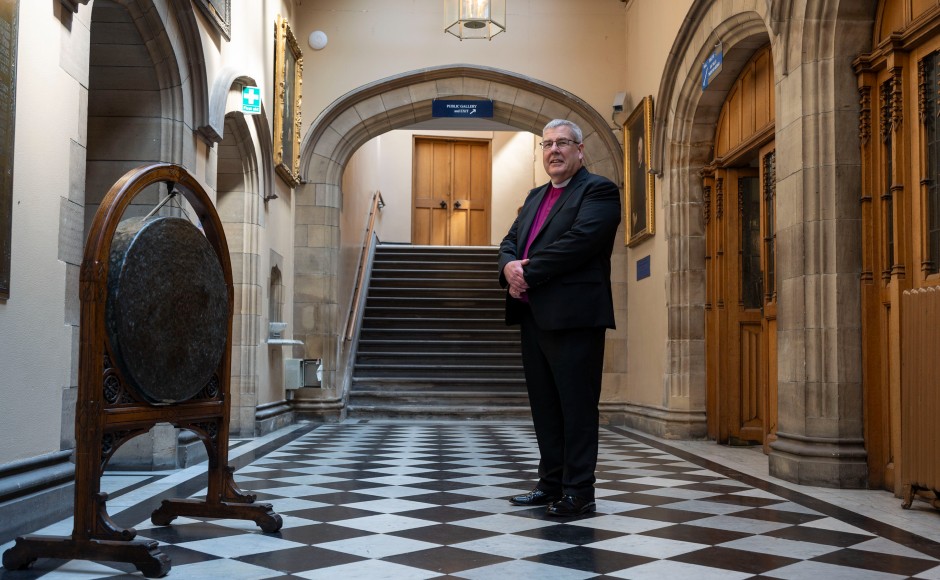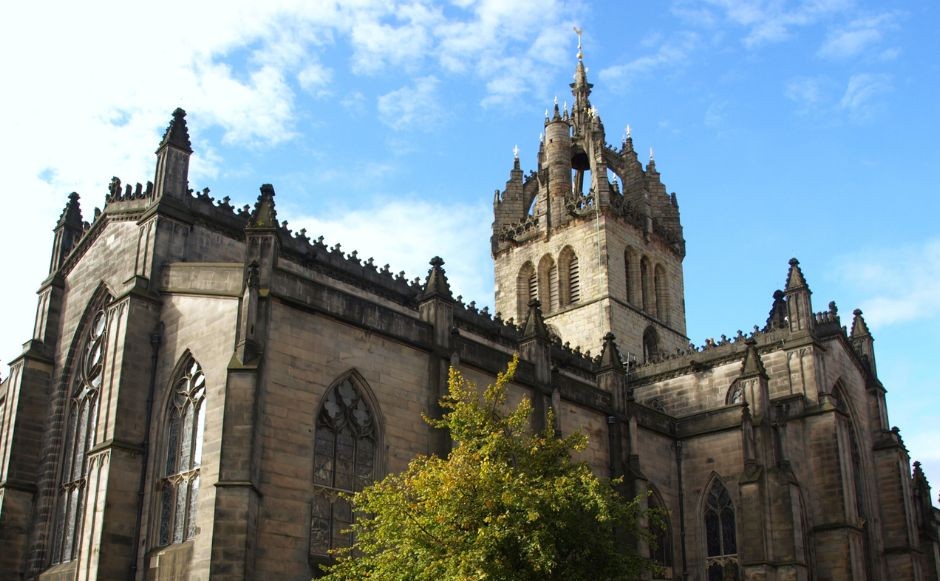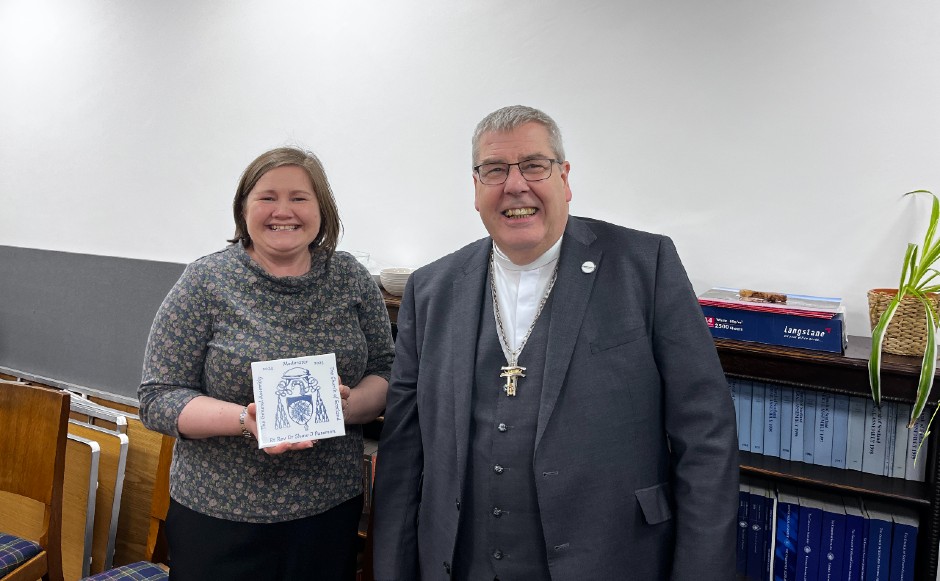Church makes good progress on presbytery reform
Published on 28 January 2021
The Church of Scotland is making good progress in streamlining its presbytery structures to ensure it operates more effectively and efficiently.
Three new groupings – Aberdeen and Shetland, Clyde and Fife – are already up and running as part of a radical reform agenda to ensure that the Church is lean and fit for growth.

The General Assembly of 2019 approved a plan which will see the number of presbyteries in Scotland reduced from 43 to around 12.
Presbytery reform is a major undertaking for the Church as it requires change on many levels – from congregations and kirk sessions through presbytery committees and often involves people finding new ways to work closely together across large distances.
New beginnings
Rev Dr George Whyte, Principal Clerk of the General Assembly, said work is continuing apace across Scotland to unite presbyteries based on existing geographical or cultural connections.
"Presbytery reform is a middle-distance race not a sprint, and it needs to be shaped by those on the ground," he said.
"It will happen in stages with the first 'new' presbyteries having already started while others will seek approval to unite at the 2021 and 2022 General Assemblies.
"We hope the new pattern of presbyteries will be in place from January 2023.
"This, of course, is more of a beginning than end as people work together to reshape and renew the life of the Church."
The changes will be made as part of a major programme of work to reform church governance structures and to devolve resources to presbyteries to support the local church in carrying out its mission.
They are set against the backdrop of financial pressures exacerbated by the COVID-19 pandemic which has led to reduction of £11.3 million in Ministry and Mission contributions and investment income in the 2021 budget.
Affordable and sustainable
Accounting for 75% of national expenditure in 2021, the cost of ministry is £40.6 million for the coming year, an increase of almost £1 million on the previous year largely due to the recruitment of ministries development staff (MDS) posts.
The Assembly Trustees say that future presbytery plans, which currently suggest that the number of ministers and other roles in ministry could increase, must be affordable and sustainable and based on the reality of the Church's financial situation.
In light of financial pressures, the operating model of the Church must be reviewed before bringing new target numbers for future ministry posts to the 2021 General Assembly.
They are considering putting a hold on recruitment of any further MDS staff beyond those agreed in December 2020 until commissioners approve the plan.

The Assembly Trustees acknowledge that many ministers who retire could not be replaced like for like even if this was an affordable aspiration due to a shortfall in the number candidates to fill the emerging vacancies.
The provision of training will be reviewed with the view of providing enhanced opportunities for ministry from a broader population including elders and worship leaders.
The Church is also taking careful stock of its land and buildings with a view to disposing of properties that no longer serve the mission of the church.
Joint working and learning
The Presbytery of Aberdeen and Shetland was formed on 1 June, 2020.
Discussions are underway to form a new Presbytery of the North East of Scotland, which would include Aberdeen and Shetland, part of Moray, Kincardine and Deeside, Gordon, Buchan and Orkney next year.
This would come to the 2022 General Assembly and be implemented from January 2023.
Rev Dr John Ferguson, clerk to the Presbytery of Aberdeen and Shetland, said the merger has so far been a success.
"We had already invested in technology prior to the pandemic to allow for much greater use of video conferencing in light of the geography of the new presbytery," he added.
"The number of meetings was set at just four a year but the outbreak of the pandemic meant that the use of Zoom and Teams to conduct business came into its own and this has been very successful.
"Members of the new Presbytery have learned a great deal from one another about being the Church at local level and members of the former presbyteries now have a greater insight into the challenges of city centre ministry and ministry on an island."
Energy and optimism
Rev Dr David Coulter, clerk- designate to the Presbytery of Fife, said plans are firmly in place for the first business meeting on the sixth of February.
"Thanks to the excellent work of the transition group made up of members of Dunfermline; Kirkcaldy and St Andrew's Presbytery, Rev Jane Barron has been nominated as the Moderator-elect," he revealed.
"Conveners and members of the Business; Management and Mission Committees have been appointed subject to Presbytery approval.
"Thanks to Zoom and Teams there has been early contact and close collaboration with the offices of the Principal Clerk and the General Trustees as well as with the Presbyteries of Clyde and Aberdeen.
"Overall, there is a real spirit of renewal, energy and optimism towards building the new Fife Presbytery."
The new Mission Director, Neil Campbell, takes up his post next month and Dr Coulter will join after Easter.
Rev Dr Peter McEnhill, clerk to Clyde Presbytery, said: "Clyde Presbytery is still very much a work in progress and the focus is mission in response to the challenges of an increasingly secular society.
"Reform is paradoxically about getting bigger to get closer to the ground, big enough for resources to be devolved so that meaningful decisions can be taken closer to the local context.
"Resourcing the local church so that worshipping communities are freed to focus on witnessing and serving their communities in the name of Christ is the goal.
"Presbyteries will be more fleet of foot and supple in their response, fashioning the new shape of the Church for the 21st century by letting go of some of the old patterns that have served us so faithfully in the past.
"The work will require wisdom and discernment and not a little pastoral insight, but there is much enthusiasm for the task and a great sense that God is doing a new thing in our midst."
Work on proposals for new presbyteries includes:
- The presbyteries of Caithness, Sutherland, Ross, Inverness, part of Moray, Abernethy, Lochaber, Lochcarron -Skye, Uist and Lewis have established a steering group to look at how a Presbytery of the Highlands and Western Isles might work
- The presbyteries of Angus, Dundee, Perth, Dunkeld and Meigle, and Stirling are on track to bring proposals to the General Assembly in May
- Plans are underway to unite the presbyteries of Edinburgh and West Lothian and discussions continue around how this might relate to the presbyteries of Lothian, Duns, Melrose and Peebles, and Jedburgh
- The Presbytery of Falkirk is looking both east and west as it seeks a good fit for congregations in the middle of the central belt
- The presbyteries of Hamilton and Lanark are discussing the formation of a Presbytery of Lanarkshire which could be approved at the General Assembly this year
- The presbyteries of Ardrossan, Irvine and Kilmarnock, Ayr, Wigtown and Stranraer, Annandale and Eskdale, and Dumfries and Kirkcudbright have also established a steering group to work out a new shape for Presbytery life in the south west
- Reform discussions are continuing with the Presbytery of Argyll, which is considering becoming part of a larger grouping
- In addition to presbyteries in Scotland, the Church has the Presbytery of England, the Presbytery of International Charges and the Presbytery of Jerusalem, who will also be invited to discuss what presbytery reform means for them


